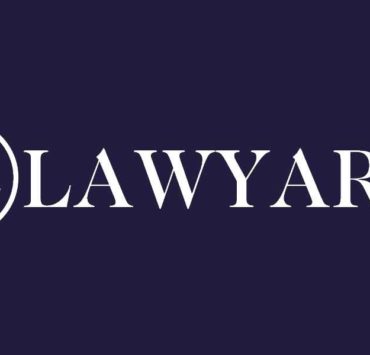The Resolution of Tax Dispute: A Call for the Adoption of a More Efficient System in Arbitration
Lawyard is a legal media and services platform that provides…
Introduction
The discussion on alternative dispute resolution mechanisms has recently picked up pace in the tax world. In 2016, The Organization for Economic Co-operation Development (OECD) released recommendations to effectively tackle international tax disputes.
The OECD proposed to make arbitration binding and mandatory under the Mutual Agreement Procedure for the resolution of disputes arising from international tax treaties.
In the same vein, developed countries have narrowed the scope of National public policy to widen the scope of arbitrable matters to include taxation. The Nigerian legal system is rigid towards changes and perhaps dogmatic and unnecessarily biased towards litigation for the resolution of tax disputes. This paper seeks to analyze the decision in Snepco & 3 Ors v. FIRS case, criticizing the basis for the pronouncement of non-arbitrability of tax disputes by the penultimate court.
Litigation over the years has not proven to be the best and the most effective mode of dispute resolution. However, it is the constitutionally prescribed mode for resolving tax disputes.
In Nigeria, litigation is characterized by undue delays and attendant high costs, which has made it very unattractive to the extent that litigants often ask the question “why do I want to get into it, when I don’t when I will get out of it?” For instance, certain cases spend several years in court before they are heard and another ludicrous number of years before judgment are passed.
The Arbitrability of Tax Disputes
The basic issue alternative dispute resolution has come to meliorate is to save time, of course knowing how essential time is, no one wants to wait years before getting a resolution to a dispute. Economic exigencies demand an effective and efficient way to resolve tax dispute in every tax system.
Although alternative dispute resolution is an easier way to resolve disputes, it is quite saddening that it doesn’t apply to all cases. In the case of Kano State Urban Development Board V. Fanz Construction Limited, the Supreme Court recognized categories of matters that are not arbitrable in Nigeria, they are –
- Indictment for an offence of a public nature
- Disputes arising out of an illegal contract
- Disputes arising under agreement void as being by way of gaming or wagering
- Disputes leading to a change of status, such as divorce petition, and
- Any agreement purporting to give an arbitrator the right to give judgment in rem
However, recently, the scope of non-arbitrability in Nigeria has also extended to tax disputes as the Nigerian Courts have held that Tax disputes are outside the purview of arbitration and other alternative dispute resolution mechanisms. The Court of Appeal in the renowned case of SNEPCO & 3 ORS v. FIRS recently upheld the decision of the Federal High Court that disputes over taxation are exclusive to the FHC and thus, are not arbitrable as they pertain to revenue accruing to the government.
Whilst there may be some justification for holding that tax disputes are not arbitrable in light of its peculiarity and on the ground of public policy, the reliance on the exclusive jurisdiction of the FHC on tax matters as a basis for such pronouncement is not a valid justification.
SNEPCO & 3 Ors v. FIRS Review
The rationale of the court in arriving at its decision that the Federal High Court has exclusive jurisdiction to resolve tax disputes and therefore not arbitrable in Nigeria is questionable. For instance, the court relying on Section 251(1) of the 1999 constitution provides that the FHC shall have and exercise jurisdiction to the exclusion of any other court to determine matters relating to the revenue of the Federal Government in Nigeria.
In our modest view and without prejudice to the perspective of other writers, applying the literal rule of interpretation, the provision seems to imply “to the exclusion of any other court” i.e. various States High Court which exercises general civil jurisdiction and does not exclude “arbitration tribunals” which has always been regarded as separate dispute resolution mechanism and has never been classified as “Courts” under the Nigerian Legal Jurisprudence, it runs on a separate track. It is hoped that the Court of Appeal will at any given opportunity to revisit their position on the non-arbitrability of tax disputes.
The extant National Tax Policy approved by the Federal Executive Council in 2017 encourages the use of alternative dispute resolution mechanisms especially arbitration in resolving tax dispute. It states ‘in the event of any disputes, the tax authority and relevant authorities shall leverage on all amicable means of dispute resolution including arbitration and only resort to judicial determination as the last resort’.
Surprisingly, the National Tax Policy is an offspring of the FIRS. Hence, it is expected of FIRS to be at the forefront of encouraging the use of ADR in resolving disputes rather than subjecting itself to the uncertainties of Litigation.
Tax Arbitration in Other Jurisdictions
The position of tax arbitration seems not to be different in other jurisdictions. In the Uganda case of Heritage Oil & Gas Limited v. Ugandan Revenue authority, the High Court of Uganda per Helen Obura J. refused to give effect to the arbitral clause because tax matters are statutory and not contractual, thus cannot be varied by contractual agreements.
Furthermore, the laws of South American countries like, Bolivia, Peru, Argentina, Colombia and Ecuador does not support the use of arbitration in the resolution of tax disputes. For instance, in Colombia, Article 70 of the Colombian Alternative Dispute Resolution law 1988 excluded tax disputes from being resolved through any ADR mechanism.
WHY TAX ARBITRATION?
Tax cases are sui generis, they are peculiar and should not be subjected to the rigidity, bottleneck and uncertainties of litigation. The process for resolving tax disputes can be expedited through ADR Mechanisms especially arbitration.
Most disputes arising from taxation are based on assessment and computation of taxable income. Thus, if an expert sits on a tax arbitration panel, he may be able to resolve the dispute on assessment and computation better and faster than a judge, given that cases are assigned to judges based on a random selection process and not necessarily expertise.
It is further suggested that the law and rules regulating the Tax Appeal Tribunal should be amended to allow elect to subject their dispute to any of the ADR mechanisms. In that case, parties shall be bound by the outcome of the ADR process and can only appeal to the court of appeal.
Notably, TAT has proven not to be an effective tribunal in resolving tax disputes. As of the 10th of July, 2019, the number of pending tax cases hit 165 amounting to a disputed tax value of N309.8 billion which is about $10.214 billion and EUR 1.407 million. The slow resolution of these disputes has deprived the government of an increase in its revenue base.
Several countries have embraced the idea of International Tax Arbitration in resolving disputes arising from tax treaties. Given an increasingly transnational world economy and an unprecedented high level of exchange of goods, services and capital among countries, international tax problems have multiplied and become all the more significant.
The growing number of international tax disputes made it urgent to find efficient and speedy means of dispute settlement. Expectedly, arbitration expedites the settlement of dispute ten times more than litigation.
RECOMMENDATIONS
Developed nations of the world have narrowed the scope of the interpretation of the public policy to accommodate the Arbitrability of tax disputes and this has in no small measure contributed to their economic growth and of course made these countries more attractive for foreign investors.
Albeit, this adoption arose from the mandatory arbitration imposed by the OECD, it is a step in the right direction. Examples of such countries include; Belgium, Canada, France, the Netherlands and the United Kingdom. Most African countries widely interpret public policy to revoke arbitral clauses, halt arbitral proceedings and refuse to enforce arbitral awards.
They justify this approach on the basis that public policy seeks to protect national economic interest against manipulation and exploitation. Albeit, protecting national economic interest is an important goal, however, restricting matters that are arbitrable (to include taxation) will not promote foreign investment which Nigeria grossly lacks, thus for this purpose, the Nigerian Government should take a bold step in enhancing such growth.
Arbitration has proven to be an effective way of resolving tax disputes especially in the international setting where the Organization of Economic and Co-operation Development has recommended arbitration as a more effective way of dispute resolution on matters arising from tax treaties, especially with regards to a taxpayer’s double tax burden. Conclusively, it is safe to say that the realization towards Arbitration in Nigeria is on an average rise.
To this extent, Nigeria embraced it with the enactment of the Arbitration and Conciliation Act (ACA) 1988, being a signatory to the New York Convention treaty and has adopted the United Nations Commission on International Trade Law (UNCITRAL). However, this realization can further be expanded to tax disputes. Notably, the subjection of a tax dispute to arbitration will not in any way rob government of its revenue.
Lawyard is a legal media and services platform that provides enlightenment and access to legal services to members of the public (individuals and businesses) while also availing lawyers of needed information on new trends and resources in various areas of practice.














